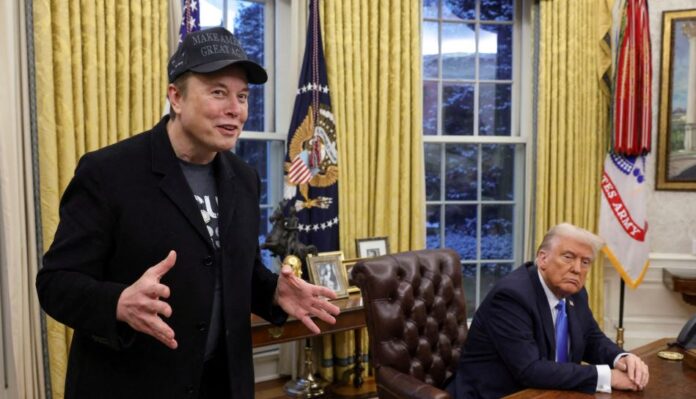Nearly 40% of federal contracts canceled as part of the Trump administration’s cost-cutting initiative are not expected to generate any savings for the government, according to official data released by the administration itself. The Department of Government Efficiency (DOGE), led by Elon Musk, recently published an initial list of 1,125 terminated contracts across various federal agencies. However, an analysis of the “Wall of Receipts” database shows that 417 of these cancellations—more than a third—will not reduce government expenditures.
In many cases, the contracts had already been fully obligated, meaning the government had a legal commitment to spend the allocated funds on services or goods, many of which have already been delivered.
Concerns Over Ineffective Cost-Cutting Measures
“It’s like confiscating used ammunition after it’s been shot when there’s nothing left in it. It doesn’t accomplish any policy objective,” said Charles Tiefer, a retired University of Baltimore law professor and government contracting expert. “Their terminating so many contracts pointlessly obviously doesn’t accomplish anything for saving money.”
The canceled contracts included paid subscriptions to media services such as The Associated Press and Politico, as well as research studies, completed training programs, purchased software, and concluded internships.
An administration official, speaking on condition of anonymity, defended the move, stating that eliminating perceived unnecessary contracts, even without immediate cost savings, was a rational step.
$478 Million in Canceled but Fully Obligated Contracts
DOGE’s data indicates that the 417 affected contracts were collectively valued at $478 million, with dozens more cancellations expected to yield minimal savings. Experts warn that these actions could disrupt government operations rather than enhance efficiency.
“It’s too late for the government to change its mind on many of these contracts and walk away from its payment obligation,” Tiefer noted, adding that a more effective approach would be to work with contracting officers and inspectors general to identify efficiencies. Instead, he described DOGE’s strategy as a “slash and burn” method.
DOGE has claimed that the overall contract terminations are expected to save the government over $7 billion, though independent analysts have questioned the accuracy of this figure.
Contracts Impacting Government Operations
Among the canceled contracts was one from the Department of Housing and Urban Development to purchase and install office furniture. Although the contract remains active until later this year, federal records show that the agency had already committed to the full $567,809 expenditure.
Similarly, the U.S. Agency for International Development had awarded a $145,549 contract to clean its Washington headquarters, with the funds already obligated to a Michigan-based Native American-owned firm. Another $249,600 contract had been allocated to a D.C. consulting firm to assist the Department of Transportation with the transition from the Biden to the Trump administration.
Some of the terminated contracts were designed to modernize government operations, seemingly contradicting DOGE’s efficiency-driven mission. One of the largest involved a $13.6 million agreement with Deloitte Consulting LLP to restructure the Centers for Disease Control and Prevention’s National Center for Immunization and Respiratory Diseases, which played a key role in responding to the COVID-19 pandemic. The restructuring included closing several research offices, and the full contract amount had already been obligated.
As scrutiny over the administration’s cost-cutting measures grows, critics argue that indiscriminate contract cancellations may do more harm than good, potentially disrupting essential government functions without achieving meaningful financial savings.



